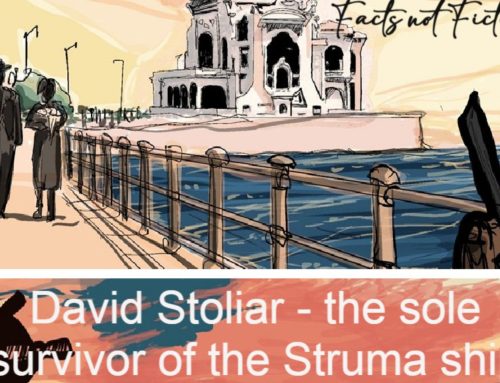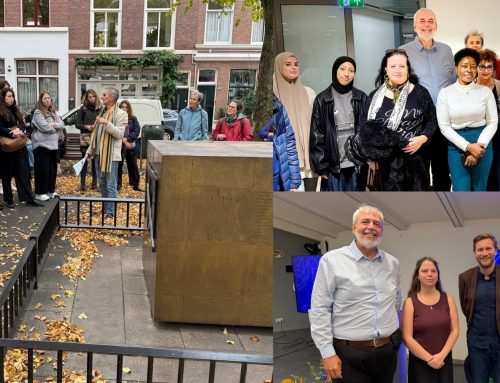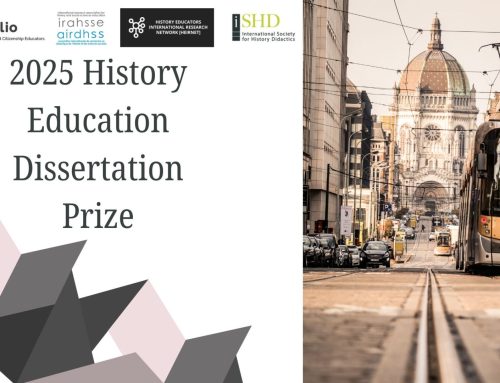On the third day of the 23rd EuroClio Annual Conference, a panel discussion focused on the role of the international community in developing history as a means to promote peace and understanding in conflict areas and divided societies. The panel was led by EuroClio Director Jonathan Even-Zohar and Head of History Teaching Unit of the Council of Europe, Tatiana Milko. The panelists were: Emir Filipovic, history educator from Bosnia-Herzegovina; Dea Maric, project coordinator at Documenta – Center for Dealing with the Past; and Samuel Lee, Professor of Social Philosophy and representative of the History NGO Forum for Peace in East Asia. History educator Khaled El-Masri, representative of the Lebanese Association for History, was also supposed to take part in the discussions, but unfortunately his visa request was rejected by the United Kingdom visa authorities. In a message relayed to the attendants by Jonathan Even-Zohar, El-Masri commented about the rejection: “I pay the price for what’s happening around my home country, Lebanon.”
In the introduction to the panel, Tatiana Milko from the Council of Europe noted that initially people were very skeptical of the role of history education in promoting peace and understanding. However, when it comes to solving military conflicts, there is of course an important role for international organizations such as the Council of Europe or the European Union. Milko pointed out that problems not only arise in military conflicts, but also in frozen conflicts, mentioning examples of Bosnia-Herzegovina and the Caucasus.
According to Emir Filipovic, the international community positively influenced the development of textbooks in his country, Bosnia-Herzegovina. Although a unified curriculum does not exist at this time, history teachers’ association EuroClio-HIP is working on multiplying textbooks and removing offensive language.
Connections throughout divided societies
Filipovic also mentioned that there are a lot of similarities between the centenaries of Northern Ireland and Bosnia-Herzegovina, stating: “There are so many issues that connect us throughout the world in these divided societies!”
However, differences exist as well, Professor Samuel Lee said. “Both Europe and Asia have gone through hardships. However, Europe has successfully gone through reconciliation and lives togheter. Whereas, in East Asia historical conflicts have not been truly solved but instead worsened. The European Cold War has more or less been overcome. Following the fall of the Berlin Wall came a peaceful cooperation. On the contrary, in North and South Korea there is no reconciliation.”
“Conflicts are ethnically driven but also the narratives are ethnically shaped,” Dea Maric from Documenta said. In addition, history education tends to perceive itself as the only view that matters and is correct. Documenta, she continued, has a number of programmes dealing with these problematic issues: Documenting Human Losses, Personal Memories of War, and Public Dialogue and Education for Dealing with the Past. Especially the latter was controversial due to its multi-perspective approach.
“Is history teaching part of the problem or the solution?” Emir Filipovic asked himself. “History education can be an antidote to the poison, but history educators sometimes don’t dare to change.” Sometimes we have to make a sacrifice in order to create change, Filipovic concluded.












